Published
- 06:00 am
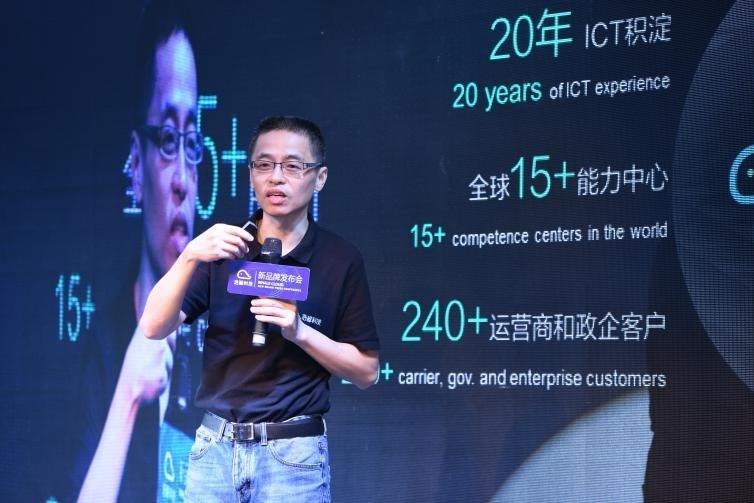
Whale Cloud Technology Co., Ltd ("Whale Cloud") launched its new brand, logo, and strategy in the West Lake Expo Museum in Hangzhou. Whale Cloud executives, global partners, media, and experts from the industry were all present to witness this important event.
A world-leading data intelligence company, Whale Cloud was founded in 2003 as the largest subsidiary of ZTE and has been involved in telecom data processing and ICT domains for 15 years. In early 2018, it became a strategic partner of Alibaba Cloud. Today, Whale Cloud provides digital transformation technologies and services for telecom operators, governments, and enterprises in more than 80 countries and regions in the world.
"The center of the digital economy is data, and we believe we will outperform our competitors if we possess powerful data computing capabilities. The whale is a symbol of power and wisdom. Naming our company Whale Cloud reflects our mission of exploring unlimited data values," said Bao Zhongjun, CEO of Whale Cloud.
The slogan "Data intelligence creates unlimited possibilities" shows the company's unique position.
Reflecting on what it calls a unique position in the market, Zhou Yong, VP of Whale Cloud, added: "We are the only company with experience in delivering digital services to not only the telco industry, but in government and other industries. With the Alibaba partnership, we now have the infrastructure to leverage Alibaba Cloud technologies and our telco capabilities to expand our business from ICT to vertical industries."
Mr. Yang Ming, VP of Whale Cloud, shared the company's "321" strategy, which explains Whale Cloud's future initiatives to build its strengths in "3" areas, namely, technology, business model, and basic research, and focus on "2" prioritized market segments (enterprise and city) in digital transformation to serve "1" ultimate goal of creating value for theircustomers.
Whale Cloud has earmarked 1 billion yuan ($145.3 million) over the next three years for research into its core technologies. It also plans to launch an AI lab, a city brain research institute, and a cloud computing application development program to ensure continuous innovation and quick implementation of new technologies and products.
SOURCE Whale Cloud
Related News
- 03:00 am

The Cyber Defense 2018 Global Award for "Hot Company Forensics" has been won by international cybersecurity company Resecurity in recognition of one of its core products - Context™, combining a platform for digital forensics, intelligence analysis and cybercrime investigations.

The Cyber Defense 2018 Global Award for “Hot Company Forensics” has been won by international cybersecurity company Resecurity.
Cyber Defense Magazine scoured the world to reach out to almost 3,000 InfoSec players from the USA to Israel to Japanand to Germany, before narrowing the list down to a small group of finalists, announcing the winners at the major IP Expo Europe conference in London on October 3.
"Cyber Defense Magazine spent six months searching the globe to find the most innovative and cutting-edge cyber security companies for our Cyber Defense 2018 Global Awards," said Gary S. Miliefsky, Publisher, Cyber Defense Magazine. "Resecurity, Inc. won this award for 'Hot Company Forensics' because it is an innovator on a mission to help stop breaches and get one step ahead of the next threat, proactively."
The "Hot Company Forensics" award went to Resecurity for its development of innovative technologies for digital forensics and cybercrime investigation. Leveraging its strong partnerships with law enforcement agencies internationally, Resecurity has developed a next-generation digital forensics platform - Context™ - now being utilized by leading Fortune 500 corporations and governments.
In order to enable commercial organizations to take full advantage of next-generation forensics tools, Resecurity developed Context™ in close consultation with law enforcement agencies and security professionals. Context™ is delivered on a platform-as-a-service model (PaaS) model in order to simplify forensics procedures in the enterprise environment, providing companies with comprehensive forensics reports and valuable analytical information. The Context™ platform supports numerous file formats and platforms, including desktop, mobile platforms and cloud-based environments. It can be used for file, network and malware forensics, along with actor-focused investigations.
Combining forensics analysis with data enrichment technologies in this way enables Resecurity to provide the end forensics results with additional meaningful intelligence from repositories ranging from IP reputation, indicators of compromise (IOCs) and breached data to historical Dark Web records. Resecurity's Context™ now has a growing meta database of over 600 million Dark Web records, 8 billion Compromised Credentials, 12 million threat actors and over 30 million IOCs extracted from various Dark Web sources and analyzed security incidents (targeted cyberattacks, cyberespionage campaigns, malicious activity).
According to Resecurity chief executive, Charles Yoo: "Resecurity is an intelligence-driven company with a great team of experts, who understand the vital role of data in digital forensics and computer crimes investigations in practice. Our mission was to build a scalable next-generation digital forensics platform which will help law enforcement, fraud and risk managers, investigators, DFIR experts and intelligence analysts to accelerate the pre- and post-analysis lifecycle - making their work more effective and scalable and, crucially, more cost and time-efficient. We are proud to win the 'Hot Company Forensics' category in the Cyber Defense 2018 Global Awards and will keep doing a great job for the worldwide security and intelligence community."
Related News
- 09:00 am
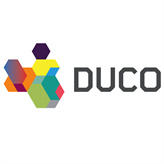
Duco, the enterprise software as a service (SaaS) company today announced an agreement with Societe Generale, the French bank and global provider of financial services to deploy Duco’s platform across the group as one of its primary reconciliation and data control systems.
Societe Generale will use Duco’s innovative platform to automate key reconciliation processes across all business areas, dramatically improving efficiency compared to legacy systems and spreadsheet-based processes. Societe Generale will also use Duco’s API to provide external reconciliation services to its clients in its capital markets business, adding value to its trade execution and clearing services.
Estelle Letribot, Global Head of Reconciliation Post Trade in Societe Generale Global Banking and Investor Solutions, said, “Innovation and digital transformation are core to Societe Generale’s strategy, both internally and for our clients. By working with Duco, we have an opportunity to reinvent our operations, introducing agility, automation and machine learning in a function that has traditionally proved very expensive and time consuming.”
Cristóbal Conde, Duco advisor and former CEO of SunGard, adds, “This is the first time in more than a decade that a new reconciliation model for financial services firms is emerging and being put to use in a core, mission critical function. The transformation of the reconciliation process from installed point solutions towards Software as a Service and more intelligent user-driven controls is proving compelling from a cost and risk perspective, and is gathering pace.”
Christian Nentwich, CEO of Duco, said, “The advantages of SaaS and self-service solutions in the reconciliation space are clear and we are glad that Societe Generale shares our vision. With machine learning and cloud-based delivery models now ready for prime time, the industry is rapidly going through a major transformation towards agile services like Duco that mutualise cost and remove unnecessary manual work.”
Related News
- 08:00 am
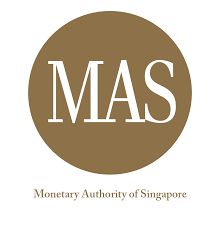
The Monetary Authority of Singapore (MAS) today issued the Guidelines on Provision of Digital Advisory Services, to facilitate the provision of these services in Singapore. The guidelines incorporate feedback from the public consultation as well as learning points from MAS’ engagements with the industry.
a) Digital advisers that seek to offer fund management services to retail investors will be eligible for licensing even if they do not meet the SFA corporate track record requirements, provided they meet other specified safeguards. These safeguards include (i) having board and senior management members with relevant experience in fund management and technology; (ii) offering portfolios that comprise only non-complex collective investment schemes; and (iii) undertaking an independent audit of the digital advisory business at the end of the first year of operations.
b) Digital advisers will be exempted from the FAA requirement to collect the full suite of information on the financial circumstances of a client, such as income and financial commitments. This is on the condition that they put in place measures to mitigate the risks of providing unsuitable investment recommendations due to limited client information. Examples of mitigating controls include fact-finding questionnaires to identify and decline the onboarding of clients who are clearly not suitable for the digital advisers’ product offerings.1
c) Digital advisers that operate as financial advisers will be allowed to pass their clients’ trade orders to brokerage firms for execution, and re-balance their clients’ portfolios in collective investment schemes, without the need for an additional capital markets services licence2 under the SFA.
While MAS is making it easier for digital advisers to set up in Singapore, the business model carries unique risks, such as faulty algorithms and cyber threats. To mitigate such risks, the guidelines set out MAS’ expectations for digital advisers to establish robust frameworks to govern and supervise their algorithms, as well as to manage technology and cyber risks.
Mr Lee Boon Ngiap, Assistant Managing Director (Capital Markets), MAS, said, “We are refining our regulatory framework to support innovation in financial advisory services while maintaining adequate safeguards to protect investors’ interests. The guidelines will facilitate new online business models to provide investors with more options to access investment advice.”
Additional information
Digital advisers provide advice on investment products to clients using automated, algorithm-based tools, with limited or no human adviser interaction, allowing consumers greater access to lower cost financial advice.
The provision of digital advisory services is currently regulated under MAS’ capital markets regulatory framework. Providers of digital advisory services are required to be licensed under the SFA and/or the FAA. The type of licence required depends on the entity’s scope of activities and business model. Financial institutions currently regulated under the SFA and/or FAA can already provide digital advisory services.
Related News
- 09:00 am
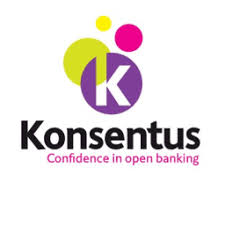
Konsentus, a RegTech solutions business, which facilitates checking the identity and regulatory status of Third-Party Providers (TPP), enabling Financial Institutions (FIs) to be PSD2 open banking compliant, is pleased to announce an update to their TPP regulatory checking sandbox so that it now offers solutions based on the United Kingdom Open Banking Implementation Entity (OBIE) standards.
The OBIE is one of a number of organisations including: STET, The Berlin Group, PolishAPI Project etc. that are designing the specifications for the APIs that FIs use to securely provide open banking services and to support regulated TPPs and FIs to use the PSD2 open banking services. None of these standards are mandatory, and FIs can decide to develop their own APIs independently as long as they comply with PSD2 regulation.
Konsentus will announce shortly further developments to support the other standards in their Sandbox for TPP identity and regulatory checking.
With the Konsentus TPP identity and regulatory checking OBIE sandbox, FIs and developers will be able to build and test, in advance of the March 14, 2019 deadline, the essential checking services that support PSD2 open banking compliance if they are using the OBIE standards. Konsentus, with their real-time, on-line identity and regulatory checking of TPPs, assists FIs to comply with PSD2 and ensure only regulated TPPs can access Payment Service Users accounts.
Brendan Jones Chief Commercial Officer of Konsentus said “FIs now have less than 6 months to develop, test and build their PSD2 open banking solutions, before the March 2019 deadline when they need to be live for external testing. With the severe time pressure upon them, the availability of this TPP regulatory checking sandbox will be a crucial aid to the payments industry as they work towards proving their compliance, and we are pleased to announce at the time of PayExpo the launch of a solution based on the OBIE API standards.”
Related News
- 02:00 am

Wu-Shung Yan, Executive Vice President, Taiwan Cooperative Bank and Eric Wang, Visa’s Head of Product for Taiwan, demonstrating Taiwan’s first QR Code payment by an international payment network following EMV Specifications.
Part of Financial Information Service Co.'s "Standardized QR Code Solutions," the new EMV solution will be among the first large-scale deployments of standardized QR Code payments in Taiwan, initially covering more than TCB's 8,000 acceptance points. Soon consumers can link their TCB Visa debit or credit cards with the Taiwan Mobile Payment mobile app to experience the security and convenience of mobile payment.
Chung-Dar Lei, Chairman of TCB, said: "This is a significant milestone for mobile payment in Taiwan. TCB is proud to be the first financial institution in Taiwan to carry out the first EMV-compliant QR Code payment. This roll-out will boost the bank's already extensive acceptance footprint due to standardized QR Code's cost-effectiveness as a payment method. We hope to help further advance Taiwan's mobile payment for the benefits of all."
Marco Ma, General Manager of Visa Taiwan, said: "By adopting the EMV QR Code Specification, as supported by Taiwan's two large domestic payment switches, consumers can enjoy a fast, convenient and secure payment experience. The specifications are intended to be globally interoperable; and with the right mobile application local consumers as well as overseas travelers will be able to use the same QR Code to make payments everywhere the specifications have been adopted, opening up more revenue sources beyond Taiwan."
TCB's EMV QR code solution offers extensive payment applications including payments for credit card bills, utilities, insurance premiums, tuition fees, air tickets and taxes. From online merchants to food trucks, standardized QR code payments provides consumers with a safe and more convenient way to shop and bring Taiwan closer to becoming a cashless society.
Related News
- 04:00 am

so-sure are also disrupting the insurance market by introducing ‘social insurance’. The concept allows customers to connect their policy with friends and family members who also have a policy with so-sure. As long as no one you are connected to makes a claim, the customer will get up to 80% of their premium back at the end of the policy year.
What's more, so-sure offers one simple policy with no hidden terms and cover you for loss, theft, accidental damage, out of warranty breakdown and more.
Starling’s in-app Marketplace, launched in February 2018, offers its customers direct access to financial services and products securely on their phone. Starling has existing partnerships with pension provider PensionBee, digital investing services Wealthsimple and Wealthify, mortgage broker Habito, travel insurance provider Kasko, life insurance provider Anorak, and receipts and loyalty partner Flux.
Starling are targeting 25 marketplace partners by the end of the year.
Megan Caywood, Chief Platform Officer, Starling Bank said:
“Through our Marketplace, we want to enable our customers to manage their whole financial life in one place. As a mobile only bank, we understand the need for affordable mobile phone insurance, so partnering with so-sure was a natural fit. so-sure share our ethos of putting the customer first and are another example of our commitment to partnering with disruptors that are working to improve customers lives through intuitive products and fair and transparent pricing.
Dylan Bourguignon, CEO of so-sure, said:
“People just don’t trust insurance companies. Insurance is too expensive and when you need to claim, the current system makes it really difficult. We wanted to create an insurance policy that provides an amazing claims experience if something happens to your phone. And, have fantastic rewards if you and your friends/family don’t claim.”
Related News

Bob Reany
Executive Vice President at Identity Solutions
- 01:00 am

Manchester is leading the way and taking a major step forward in Britain’s global trade partnerships in the post-Brexit era. In the last two years, the city has trail-blazed a series of trade, investment, education and tourism partnerships with China - the world’s second largest economy – and now, for the first time, this has been connected by a social network for the Chinese community. At a time when direct links between the UK and China via trade are relatively small – with only 4% of UK exports going to China[1] – Manchester is looking to the future and recognises that China is going to play an important role in the world economy for the next century. In addition to China becoming a key player in global supply chains, one of the most significant economic trends in the world is the rise of the Chinese consumer, which presents a significant opportunity for British business.
As a global tech consultancy with a major presence in Manchester, ThoughtWorks is pioneering a digital platform that will allow Chinese people that visit the city to book transport, buy soccer tickets, make retail purchases and hotel bookings on the WeChat mobile App. Significantly, the new platform, used by 963 million people monthly worldwide, gives Chinese visitors a ‘home away from home experience’ when visiting Manchester, with access to a familiar digital and social media platform they use in China.
This digital innovation responds to Manchester’s rise as the UK’s leading city for driving forward a business and cultural partnership with China that represents a mutual investment and future cooperation and economic growth.
● Export values from Manchester to China are up 41% to £1.29 billion in the last two years – while national values fell 30% over the same period.
● 11 Chinese inward investment projects have been converted in the last two years – whilst inward investment from China to Manchester has tripled in last two years.
● Total Chinese visitor spend in Manchester has broken the £260 million barrier over the last 24 months.
● Total visits to the north west and spend by Chinese tourists have grown more than both London and the UK average between 2015 and 2017.
● The amount spent per Chinese tourist in the north west is up 94% in a year – and is now 5% higher than the national average.
● Universities in the north west now have partnerships with more than 20 Chinese universities – and there has been a 114% increase in northern students securing work internships in China.
● The number of Chinese students in Greater Manchester has grown by 9% in two years (compared to 4% nationally).
● In terms of direct travel, Manchester-Beijing has become the fastest growing direct UK-China flight route. This has resulted in record passenger numbers travelling between Manchester and Beijing – up 80% in 2 years.
Andy Burnham, Mayor of Greater Manchester said: “We’re proud of the strong links Greater Manchester has with China, not least with the increasing number of visitors who visit our city region each year. The app is a great way of making Greater Manchester even more of a home away from home for Chinese visitors and students alike.”
Ruth Harrison Managing Director of ThoughtWorks UK commented: “In recent months, some have seen the rise of China as a threat. The USA has adopted a protectionist trade strategy, and here in the UK the Bank of England has recently warned of the ripple effect of a Chinese slowdown in UK GDP. These issues largely miss the point though. China today is already twice the size of all the other BRICS countries put together, we have seen the rise of Chinese consumerism as an economic force – and the country is set to become the world’s biggest economy. In this context – and given the huge uncertainty of the UK’s trade relationships with mainland Europe, it makes sense to forge strong relationships with China. Manchester is proud to have a vibrant Chinese community and it is time to build a stronger future together.”
Mark Collin, Group Director of ThoughtWorks Ventures added: “With tens of thousands of Chinese people arriving in Manchester every year – on business, to study or visiting as tourists – it is vital that they have access to a familiar digital platform that makes Manchester a truly welcoming destination for visitors. Along with Amsterdam, Montreal, Vancouver and London, Manchester stands as one of leading cities of the world to digitise an everyday relationship with China by tailoring a digital platform that is familiar to the Chinese community and makes foreign cities feel like home. WeChat is not just about providing convenience – it’s also becoming a way to identify the cities of the world that are leading a new era of economic and cultural partnership with China.”
Related News
- 02:00 am
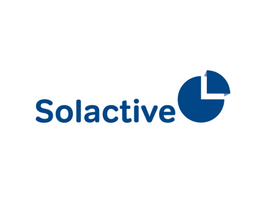
Solactive is pleased to announce the launch of the Solactive Innovative Technologies Index and the Solactive Cloud Technology Index, used as underlying for the HAN-GINS Innovative Technologies ETF and the HAN-GINS Cloud Technology ETF, respectively.
Starting from an investment universe of developed markets and emerging markets equities, the Solactive Innovative Technologies Index excludes companies that do not fulfil minimum size and liquidity criteria and then selects companies operating in industries classified as: Robotics and Automation, Future Cars, Cyber Security, Cloud Computing, Genomics and Social Media. Current index components are for example: Salesforce.com Inc., Amazon Inc., Seattle Genetics Inc., and Fortinet Inc.
The Solactive Cloud Technology Index is free-float market-cap weighted and includes the 50 stocks that are most closely related to the theme of cloud computing. The index universe consists of stocks listed in developed markets and emerging markets and is based on Solactive’s proprietary ARTISTM (Algorithmic Theme Identification System) technology, a software tool that utilizes natural language processing to identify thematic exposures in companies using unconventional data sources. Current index components are for example: Apple Inc., Nvidia Crop., Adobe Systems Inc. and Microsoft Corp.
Timo Pfeiffer, Head of Research at Solactive, commented: “Technology is advancing at a very fast pacecreating many opportunities in the market. Not only do Google, YouTube and Facebook rely on a modern IT infrastructure, a world without cloud storage would be unthinkable even for private consumers. By investing in companies driving innovation, investors can be directly exposed to the performance of market segments expected to grow in the future. For example, the Solactive Cloud Technology Index is tracking this excitingindustry that is tapping in our everyone’s life. Therefore, we are happy to team up with HANetf and develop two innovative and investable index strategies.”
Hector McNeil, co-CEO of HANetf said: “HANetf works with third-party asset managers to bring differentiated and unique ETF exposures to European investors. Solactive have developed an outstanding reputation supporting the needs of ETF issuers, providing tradable indices that enable investors to target modern investment themes and ideas. We are pleased to have been able to leveraging their expertise in index construction to target the exciting emerging investment themes of cloud computing and innovativetechnologies in our latest ETF launches.”









